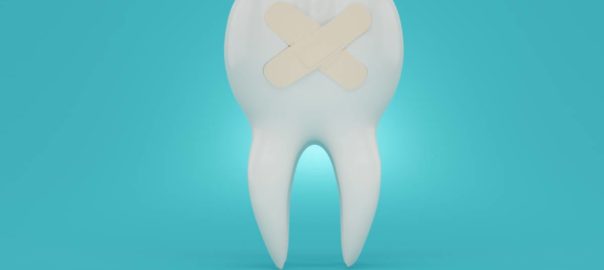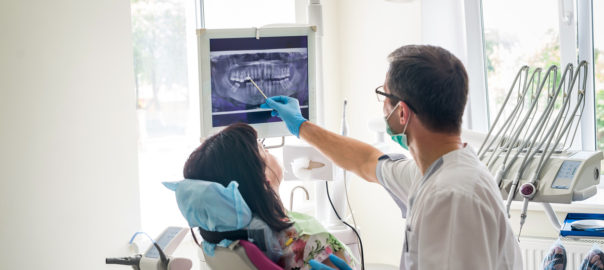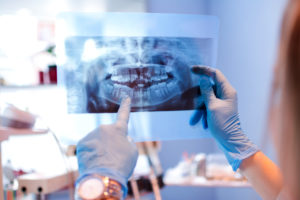Emergency dental care is required when you experience acute pain, gum bleeding, or have got into an accident resulting in broken teeth. In this article, we discuss how to avoid dental emergencies.
How to Avoid Dental Emergencies
Dental emergencies can be typically divided into two main categories: those caused by infection and those caused by accidents.
Dental Emergencies Caused by Infection
Infection can spread in the mouth very quickly and cause devious issues requiring emergency care. In most cases, oral infections are caused by insufficient efforts put towards your dental care. Below, we list the main tips that will help you avoid dental emergencies.
Brush Your Teeth Effectively
Dentists insist that we should brush our teeth for at least two minutes twice a day. Make sure to clean all the areas in your mouth, especially at the back, where it is harder to reach. Also, special attention should be paid to cleaning along the gum line so that plaque does not collect in periodontal pockets. Use a fluoride toothpaste, as this mineral is proven to be effective at preventing cavities.
Floss Every Day
Flossing is another critical step of your oral hygiene routine, as in many cases, you can not remove all food particles and plaque from your teeth with just a toothbrush. It is best if you floss in the evening before bed to make sure no food residue and bacteria linger between your teeth during the night when the bacteria are most active in your mouth.
To floss effectively, move the thread gently between the teeth, making sure to clean each tooth from both sides. Try to avoid damaging the gums with the tread. If using regular floss is challenging, you can try using special floss threaders and interdental brushes.
Add a Water Flosser to Your Routine
A water flosser can not replace a traditional toothbrush or floss. Still, it is proven to be very effective as an additional step in your routine, especially in gum disease prevention and treatment.
Get Professional Dental Cleanings
Even patients who are the most diligent with their hygiene routine need professional dental cleanings every 6 to 12 months. Most of us have areas in the mouth that are hard to reach. The problem is especially noticeable in those having crooked or overcrowded teeth. Plaque accumulates in such areas and turns into tartar over time.
Bacteria living in plaque and tartar cause tooth decay and gum disease—issues that both can lead to dental emergencies. Thus, by getting professional cleanings according to the recommended schedule, you can avoid these issues.
On top of that, you can get fluoride treatments after each cleaning that will significantly strengthen the enamel of your teeth and make them more resistant to bacteria and decay.
Undergo Checkups at Your Dental Office
Bi-yearly checkups that go hand in hand with professional dental cleanings will ensure that all the issues are addressed before they turn into severe problems and dental emergencies.
Address Existing Issues On Time
Never put off dental visits and treatment if you know or suspect you have a problem. Some people think that a small cavity does not require immediate care. However, a minor cavity can very quickly become severe tooth decay, requiring more complex treatments, such as root canal or even tooth extraction. In fact, most dental emergencies are caused by minor issues that are not addressed in time.
Choose a Reliable Dentist
Some dental emergencies can come about from an improperly performed procedure. Even such a simple procedure as a dental filling can fail and cause severe consequences. Make sure you check the credentials and reviews of your dental specialist before undergoing any procedures.
Dental Emergencies Caused by Accidents
Dental emergencies caused by accidents include:
- Chipped, cracked, or broken teeth
- Dislodged teeth
- Knocked out teeth
- Broken or dislocated jaw
- Blood vessel damage within the gums or tooth root damage
A lot of such dental emergencies happen while playing sports, especially extreme or contact sports, or engaging in similar activities. One of the main preventive measures is to wear a mouthguard. It can absorb and soften the impact on the teeth, thus preventing damage.
You can buy a mouthguard at a local drugstore without a prescription. However, over-the-counter mouthguards might feel uncomfortable to wear, as they best suit an average jaw and teeth. We recommend getting a custom-made mouthguard from a dental office. This way, you will not experience discomfort wearing it and will most likely wear it more often as a result.
Call Us if You Have a Dental Emergency
If you experience an acute toothache or have had an accident, do not hesitate to call an emergency dentist at Samaritan Dental. We are looking forward to helping you restore your oral health.
















 Yelp
Yelp I have never had a better dental experience prior to my visit with Dr. Zabolian. It was pain free for the first time ever, the staff was friendly, accommodating to my schedule, there were no problems with my insurance claims... I am so happy I have found a dentist (after all these years) I feel so comfortable going to and also taking my family.
I have never had a better dental experience prior to my visit with Dr. Zabolian. It was pain free for the first time ever, the staff was friendly, accommodating to my schedule, there were no problems with my insurance claims... I am so happy I have found a dentist (after all these years) I feel so comfortable going to and also taking my family. 






